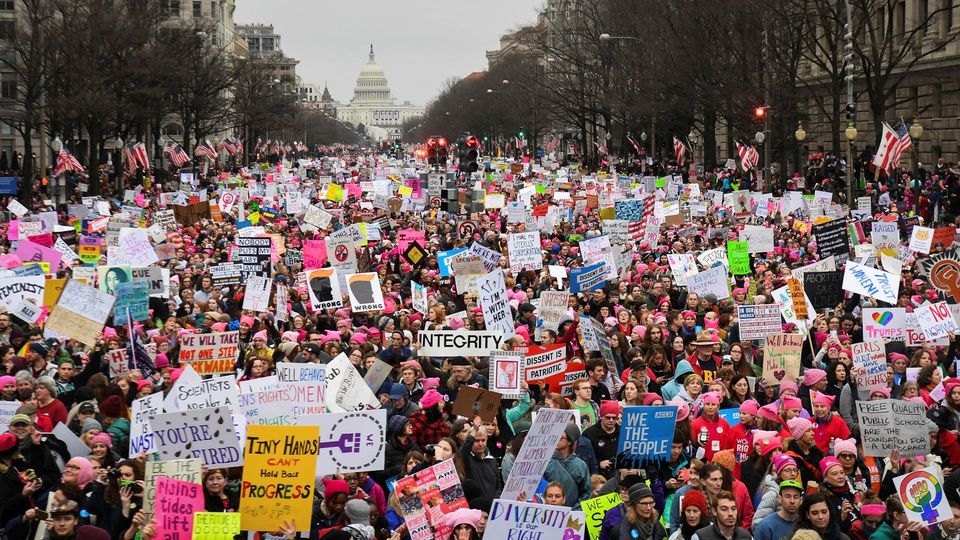The #metoo backlash: the latest brand of gaslighting survivors into silence - by Camille Saunders

by Camille Saunders
NB: this article speaks in cis/heteronormative terms, but the victim-survivor can be of any gender, as can the perpetrator, and all situations are equally valid and harmful both to the individual and society
Since the Year of the Woman in 2018, women’s rights have repeatedly hit the headlines and shocked the nation into re-posting Instagram infographics about feminism for the brief period that it is still trending. Perhaps what best highlights this rise and fall in interest regarding women’s rights is the origin of the name itself: 2018 was the 2nd ‘Year of the Woman’, though this was little advertised at the time. 1992 was given the same strapline to celebrate, or for some to complain about, the rising number of women in the American Senate. At the time, when President George H W Bush was asked when his party would nominate a woman for president, he replied “this is supposed to be the year of the women in the Senate. Let’s see how they do. I hope a lot of them lose.” Interestingly, while 1992 was labelled this way in response to a surge in advancements in the political legacy of women, 2018 was so labelled for the opposite reason: rises in sexual assault, harassment and abuse across all industries. The only thing to celebrate was that we were finally talking about it as a society.
Since these campaigns, reactions have swung from whole-hearted support of the #metoo and Time’s Up movements to criticising the movement as being a “witch hunt”, including from notable feminists such as Margaret Atwood and Catherine Deneuve.
One specific toxic behaviour that has been highlighted since the movement is admitting to actively enacting backlash against women for speaking out about this systemic issue, under the guise of somehow being justified. Sadly, it seems to have persuaded many. For example, in a Harvard Business Review[1]report following the #metoo movement’s rise to international fame, 20% of the 100 men interviewed said that since the rise in accusations, they were reluctant to hire attractive women for fear of being falsely accused of harassment. Interestingly however, in the same study, the paper reports that, given a list of 19 work place examples of harassment and asked to identify them, women were significantly more lenient than men in identifying them as sexual misconduct. Another way of reading this, one might argue, is that the women had gone through these situations (eg. being asked out multiple times after having said ‘no’ to a colleague, being sent sexual jokes by superiors or colleagues, or their looks and attire being commented on in a sexual way by a colleague), and not been taken seriously, that they were conditioned to see themselves as being ‘dramatic’ by labelling them as what they were. Either way, this would indicate that the men in the study were entirely aware of what constitutes workplace harassment, and therefore their reluctance to work with attractive women points to a more societal issue of objectification, rather than to an innocent cluelessness about navigating the complex, twisted, ever-shifting minefield of how to enjoy a lunchbreak without accidentally sexually assaulting a colleague, as has been the claim of countless politicians, partners in firms, and men in positions of power worldwide.
This kind of silencing of victims can only have negative repercussions. For example, a schism being formed between male and female colleagues and poor working relationships, which, given the imbalanced proportion of male to female employees in management positions, is likely to cause further discrimination against women. Or, moving away from workplace relations to the victim themselves, a fear of speaking up for fear of seeming like a "problem", a "hassle" or "causing trouble". None of these reactions are new since 2018 by any means, but at least by bringing the wider issue of harassment into the forefront of the news, these pervasive ways of making victims feel unsafe rather than supported can hopefully be identified, penalised, and steps can be made to ease the mental effect these doubts and fears can have on the survivor.
It might be worth pointing out, that during the summer term of 2021, with the background of sixth forms and secondary schools being inspected by the police on grounds of sexual abuse, of school pupils walking out of class to protest lack of protection from this, and of open letters and Instagram pages exposing hundreds of thousands of teen testimonies of sexual crimes, this kind of identification exercise was suggested and subsequently rejected by multiple different schools.
This same Harvard Business review even shows that 21% of men were “reluctant to hire women for jobs involving close interpersonal interactions with men” including, crucially, travelling with men on business trips, and a further 27% said they “avoided one-on-one meetings” with female colleagues. However, when broken down, this effectively means that male superiors are deciding to award fewer opportunities for travel and international employment, and purposefully excluding them from a proportion of all their meetings in the favour of speaking to a man. This being a reaction to a movement highlighting discrimination and harassment against women, it is hard to see how their intention is to help fix the problem in any way, rather than simply to aggravate the situation and hide themselves from taking any responsibility for their actions.
Yet somehow, this (to me, clear) narrative has been completely subverted by politicians, news outlets and unsurprisingly, the anti-feminist community to reveal an entirely different headline. Rather than men aggravating an already serious problem to aggressively maintain the status quo and to justify their prejudiced actions against female employees, it is presented as the fault of the women for speaking out through #metoo and Time’s Up, as though we are bringing these reactions on ourselves. In fact, all this backlash does is point to the relentless battle of misogynists to find constantly adapting ways to silence women and uphold the patriarchal regime.
No victim-survivor of sexual misconduct should ever be made to feel afraid of the backlash of speaking out, especially by biased headlines and societal pressures. We have so much for which to thank the #metoo movement, including a 70% increase in female employees feeling more comfortable speaking out, widespread awareness of the reality of being a woman, equity quotas being implemented in certain industries, perpetrators being held accountable, and individuals with international fame and success being brought to trial, and even sometimes justice. Ultimately therefore, bashing the #metoo movement as being a step in the wrong direction is unjust and unfounded, and it has highlighted more toxic behaviours that we now also need to address.
by Camille Saunders
[1]Harvard Business Review, Tim Bower, September-October 2019 edition: https://hbr.org/2019/09/the-metoo-backlash
Image source: Council on Foreign Relations https://www.cfr.org/blog/codifying-metoo-international-law
